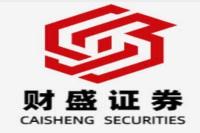Tesla's Song Gang's Departure: A Ripple Effect in China's EV Market?
Meta Description: Explore the impact of Tesla's Song Gang's departure on the Chinese electric vehicle (EV) market, analyzing its implications for Xiaomi, Nio, and the broader industry. Discover expert insights, industry analysis, and future predictions. Keywords: Song Gang, Tesla, Xiaomi, Nio, EV market, China, manufacturing, production, capacity, electric vehicles.
This isn't just about a high-profile executive changing jobs; it’s a seismic shift hinting at the intense competition and rapid growth within China’s booming electric vehicle (EV) industry. The news that Song Gang, Tesla’s VP of manufacturing and head of its Shanghai Gigafactory, is leaving the company sent shockwaves through the sector. Speculation is rampant – is he heading to Xiaomi, Nio, or somewhere else entirely? This isn't just gossip, folks; it's a key indicator of the challenges and opportunities facing major players in the Chinese EV market. We delve deep into the story, examining Song Gang's impressive track record, the potential implications for his next employer, and the broader ramifications for the industry. The stakes are high, the competition fierce, and the future of electric mobility in China hangs in the balance. Get ready to buckle up, because this is one wild ride! We'll explore the complexities of EV manufacturing, the challenges of scaling production, and the strategic maneuvering of industry titans. Prepare to be amazed by the sheer scale of innovation and the cutthroat competition in this dynamic market. This isn't just another news story; it's a masterclass in strategic business decisions, technological prowess, and the relentless pursuit of market dominance.
Song Gang's Legacy at Tesla: A Manufacturing Maestro
Song Gang’s departure from Tesla isn't a simple resignation; it's the end of an era. He wasn't just an employee; he was the architect behind Tesla's phenomenal success in China. Remember, Tesla's Shanghai Gigafactory, a marvel of modern engineering, was largely his brainchild. He spearheaded the astonishingly rapid ramp-up of Model 3 production, proving that producing EVs at scale in China was not only possible but could be done with breathtaking speed. His contributions extended beyond Model 3; he also oversaw the launch of the Gigafactory's Phase 2, significantly boosting Tesla's production capacity. His expertise isn’t limited to car manufacturing; his vision included the development of a world-class energy storage facility, aiming to set new benchmarks in the industry. This isn't just about building cars; it's about establishing a complete, integrated ecosystem. His departure leaves a massive void, a testament to his unparalleled skill and leadership. The question on everyone's mind: Who can fill those shoes?
The Xiaomi Factor: A Gamble on Growth?
The whispers linking Song Gang to Xiaomi are particularly intriguing. Xiaomi, a tech giant branching into the EV market, is facing a classic scaling problem. Demand for their vehicles is skyrocketing, but production is struggling to keep pace. Their current factory in Beijing is operating at full capacity, leading to significant delays in deliveries – a painful wait of 21 to 24 weeks for some models! This is where Song Gang’s expertise comes in. His proven ability to ramp up production at breakneck speed makes him an incredibly attractive asset for Xiaomi. Bringing him on board would be a major coup, a bold statement about their commitment to aggressive growth. But it’s a gamble. Can he replicate his Tesla success in a completely different environment? And can Xiaomi’s existing structure and processes support his operational style? The next few months will be crucial in answering these questions. This move could either solidify Xiaomi's position as a major EV player or highlight the massive challenges of transitioning from a tech company to a car manufacturer.
Nio's Intriguing Possibility: More Than Meets the Eye
While Xiaomi is the most prominent contender, Nio’s subsidiary, Leap Motor (LeDao), also presents a compelling possibility. Leap Motor also faces similar production bottlenecks, struggling to meet the growing demand for its L60 model. Their ambitious delivery targets for 2023 are currently lagging behind, creating a need for significant production improvements. Song Gang’s expertise in optimizing manufacturing processes and resolving production bottlenecks would be incredibly valuable to Leap Motor. This move, however, might be perceived as less high-profile than joining Xiaomi, but it could prove equally, if not more, impactful given the specific challenges faced by Leap Motor. It's a subtle, strategic move that could provide an enormous competitive advantage. The quiet efficiency here may be more impactful than a headline-grabbing move to Xiaomi.
The Broader Impact on China's EV Landscape
The ripple effect of Song Gang's departure extends far beyond Xiaomi and Nio. His move signals a broader trend: the intense competition and rapid consolidation within China's EV industry. Companies are aggressively vying for talent, recognizing that skilled manufacturing leaders are crucial for success in this rapidly evolving market. This talent war is likely to intensify, driving innovation and pushing the boundaries of EV production technology. The race for dominance is far from over, and every move, every strategic hire, carries significant weight. This isn't just about individual companies; it's a battle for the future of electric mobility in China—a market that's projected to remain a global leader for years to come. The entire industry is watching, waiting to see how this chess piece will land.
The Challenges of Scaling EV Production in China
Scaling up EV production isn't a simple matter of adding more machines and workers. It requires a sophisticated understanding of supply chain management, quality control, and workforce training. The complexities of battery production, software integration, and regulatory compliance all add layers of challenge. China's EV market is particularly challenging due to its sheer size and the diverse range of consumer preferences. This isn't a one-size-fits-all solution; it requires adaptability, innovation, and a deep understanding of the local context. Song Gang’s expertise in navigating these complexities is highly valuable, making him a highly sought-after figure in the industry.
The Future of EV Manufacturing: Automation and Beyond
The future of EV manufacturing will be defined by automation, AI-driven optimization, and the integration of smart technologies. Companies are investing heavily in robotic systems, predictive maintenance, and data analytics to enhance efficiency and reduce costs. The industry is also exploring new manufacturing processes, such as 3D printing and additive manufacturing, to further improve production flexibility and customization options. Song Gang’s experience in implementing these technologies will be invaluable to whichever company he joins, giving them a competitive edge in the race towards a more efficient and sustainable future.
Frequently Asked Questions (FAQs)
Q1: Why is Song Gang's departure from Tesla such a big deal?
A1: Song Gang was instrumental in building Tesla's Shanghai Gigafactory into a highly efficient production powerhouse. His experience in scaling EV production is incredibly valuable, making him a highly sought-after figure in the industry. His move signals the intense competition for top talent in the rapidly growing EV sector.
Q2: Where is Song Gang most likely to go?
A2: While speculation is rampant, Xiaomi and Nio's Leap Motor are the most likely candidates. Both companies are facing substantial production challenges, and Song Gang's expertise in ramping up production would be invaluable.
Q3: What are the challenges facing Xiaomi and Nio in their EV production?
A3: Both companies are experiencing significant bottlenecks in production capacity, resulting in lengthy delivery times for their vehicles. They need to drastically increase production to meet the surging demand.
Q4: How will Song Gang's move impact the Chinese EV market?
A4: His move will likely intensify the competition for top talent within the Chinese EV industry and accelerate the pace of innovation in EV manufacturing. It also highlights the growing importance of production efficiency in determining market leadership.
Q5: What are the key factors driving growth in the Chinese EV market?
A5: Government support for EVs, increasing consumer demand for electric vehicles, advancements in battery technology, and falling prices are all major factors contributing to the rapid growth of the Chinese EV market.
Q6: What is the future outlook for the Chinese EV industry?
A6: The Chinese EV market is poised for continued explosive growth, driven by technological advancements, increasing affordability, and strong government support. However, competition will remain fierce, and companies will need to continually innovate to maintain their market share.
Conclusion: A New Chapter in the EV Saga
Song Gang’s departure marks a significant turning point in China’s electric vehicle landscape. His move, wherever it may be, will undoubtedly shape the future of the industry, highlighting the importance of experienced leadership and the relentless pursuit of production efficiency. The race for dominance in the Chinese EV market is far from over, and the coming years promise to be filled with intense competition, rapid innovation, and significant strategic shifts. The story of Song Gang is merely one chapter in a much larger, exciting, and rapidly unfolding saga. Stay tuned; this is one story you won't want to miss!



